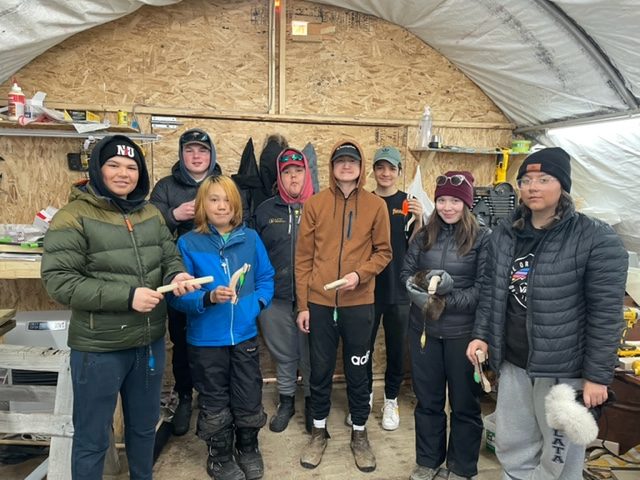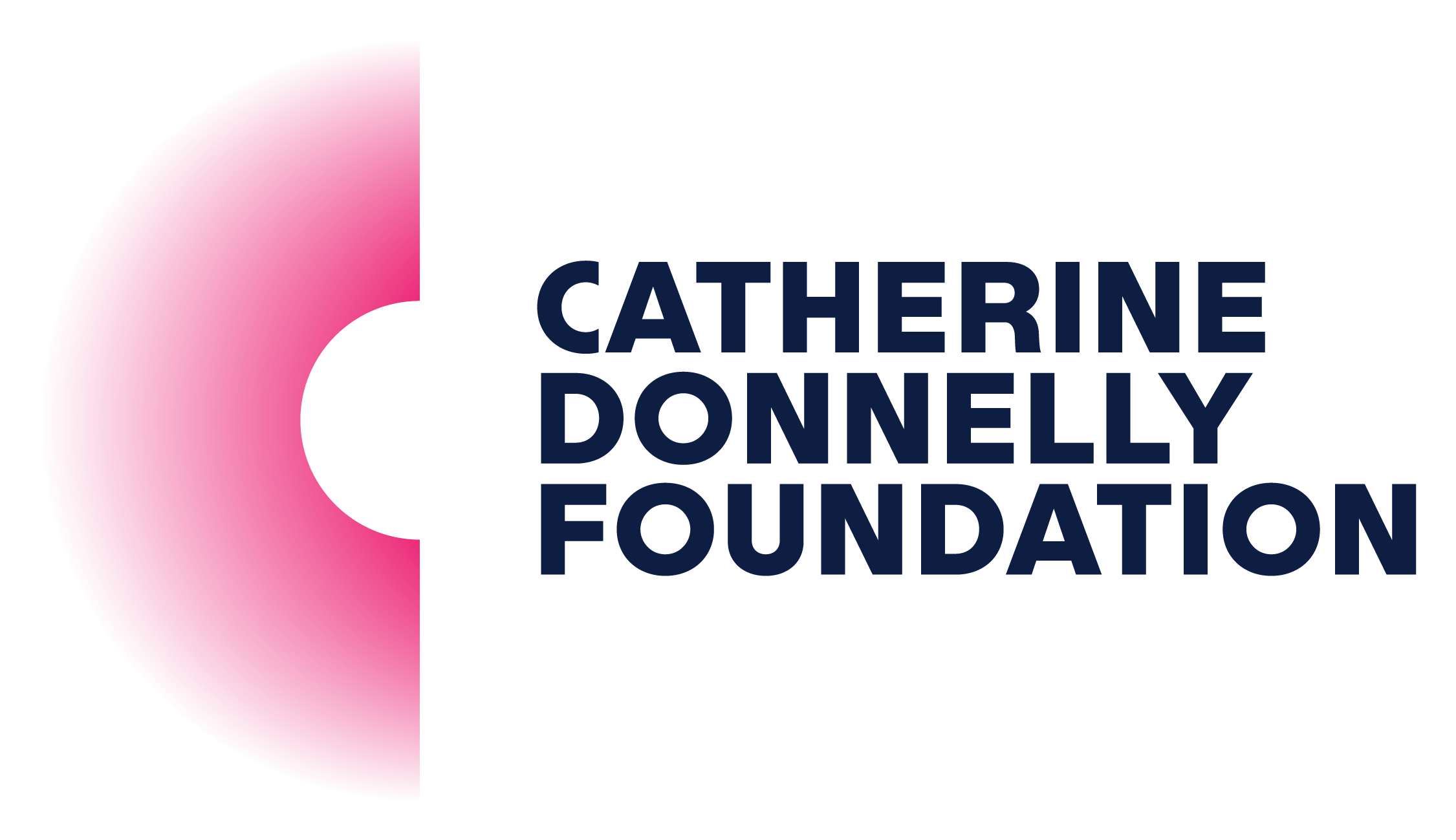Adult Education, Environment, News
November 9, 2022
Ilitaqsiniq Nunavut Literacy Council

Spotlight on CDF Partners
Ilitaqsiniq Nunavut Literacy Council
Supporting individuals and communities to be strong, confident, and self-sufficient in two worlds
November 10, 2022
The colonization of Canada’s North devastated the culture and livelihoods of the Inuit and the climate crisis has heightened concerns about how inhabitants of Inuit Nunangat will preserve traditional ways of life.
Ilitaqsiniq Nunavut Literacy Council offers a model for Inuit, their families and communities to conserve, adapt and advance customs to prosper in a transformed environment.
In Inuktitut, Ilitaqsiniq means continuous recognition of the world around us and the organization uses traditional cultural practices and skills to entice and engage locals and seeds the programs with literacy training and essential skills for employment and healthy living. With staff in Iqaluit, Rankin Inlet and Cambridge Bay, they oversee about 50 programs and initiatives annually in locations that can be nearly 2,000 kilometers apart.
“We address the economic, social and systemic issues Inuit face in our territory by providing innovative and culturally meaningful programming,” says Adriana Kusugak, executive director of Ilitaqsiniq.” We focus on wellness, quality of life, and the ability to support, a capable, confident, and self-sufficient Nunavut.”
An example of their innovative programs includes Amausiurniq, where young adults working with Elders learn how to design and sew an amauti – a traditional garment that carries a baby. Participants of the program take part in literacy training, confidence building, mental health and wellness activities and create a portfolio of their work. Having elders as instructors and content specialists keeps programming grounded in Inuit Qaujimajatuqangit.
Many participants are out of school or out of work and may not have had successful or positive educational experiences in their past, so courses are welcoming, inclusive and support individuals during their learning journey. About 85% of those completing programs go on to further work, additional training opportunities or start their own business.
“Right away there’s excitement generated [for these programs] because so many people are very hungry and thirsty for that type of knowledge and learning and training,” says Kusugak. “The impact of Ilitaqsiniq’s programs has supported the overall acknowledgment that these types of programs are valued and require additional and consistent funding moving forward.”
Among other programs Ilitaqsiniq provides are traditional food preparation with caribou, small engine repair, hockey camps and parenting skills for soon-to-be-mothers and mothers of newborns and/or toddlers.
To ensure culture- and language-based programming responds to community needs and wishes, Ilitaqsiniq gathers with elders, community members and other organizations in Nunavut towns and hamlets to build relationships, and get feedback and new ideas.
“What do you want to see? How do we have to grow? That’s how we start to build community relationships,” says Kusugak. “We never go in and say, ‘This is what you need.’ We always ask first. We never impose.” The organization also hires locally to help build capacity and resources in communities.
On-the-land practices, such as hunting, harvesting and navigation skills, are an essential element of Inuit life, but it’s becoming harder for Inuit to participate in those activities due to cost and because some skills are not being passed down. That loss of culture and experience is directly related to colonization and the impacts of residential schools.
The Qikiqtani Truth Commission, a landmark 2014 report on the experiences of the Qikiqtani Inuit with modern-day colonialism, wrote about the impact of a loss of tradition:
“By 1975, all but a few Inuit families lived in government-created permanent settlements, and many of them felt that their lives had become worse, not better. The decision to give up the traditional way of life was almost never an easy one, and once made, it proved to be irreversible. Settlement life often imposed a new form of poverty, and hindered access to the land and the country food that nourished them.”
“As I visited their communities over the last two years, Qikiqtani Inuit spoke to me in honest and straightforward terms about the day-to-day challenges and satisfactions of living as hunters and gatherers. Their deep connections to each other and to the land sustained a rich culture and language. While life on the land was never easy, they remembered the autonomy and self-sufficiency that were lost when families moved into settlements.”
Ilitaqsiniq works to address those issues through their on-the-land programming. These initiatives help restore what colonization took away. “Our programs are about bringing back the opportunity to engage in one’s cultural practices; when you go out on the land it restores your soul and there are so many wellness benefits,” notes Kusugak.
Ilitaqsiniq on-the-land programs include Qamutik (sled) building, winter and summer camping, bird and small mammal hunting, Igloo building and much more. As with all other Ilitaqsiniq initiatives, the projects all included embedded literacy and/or skills training, so prior to learning seal-hunting traditions, for instance, youth learn how to create hunting tools.
(In 2022, the Catherine Donnelly Foundation gave Ilitaqsiniq $50,000 to pursue their exceptional work as part of a larger $1 million gift to support Indigenous Peoples and communities as they respond and heal from the intergenerational trauma of residential schools.)
And whether individuals are engaged in ice fishing or self-rescue programs, these cultural practices offer opportunities to experience and monitor the effects of a rapidly changing northern climate. The Arctic is heating up nearly four times faster than the planet as a whole and Indigenous land guardians are the original model for sustainable climate practices.
“People want to feel connected to their culture. They want to strengthen their identity [and] feel pride in their cultural knowledge and skills,” says Kusugak. “And that’s what our programs allow people to do, all the while building up other skill sets that are applicable to today’s society. What we’re really doing is supporting our participants to be strong, confident and self-sufficient in two worlds.”
For more information on Ilitaqsiniq Nunavut Literacy Council visit ilitaqsiniq.ca
To read the full report of The Qikiqtani Truth Commission go to www.qtcommission.ca
